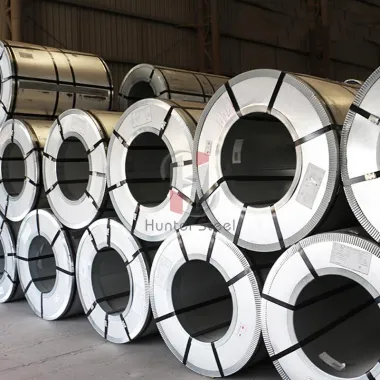Your Position: Home - Steel - FAQs | Everything You Need to Know About Automobile Steel
Automobile steel is an essential element in vehicle production, contributing significantly to their durability, safety, and stability. In this article, we aim to answer some of the most commonly asked questions related to automobile steel to provide you with comprehensive knowledge.
Automobile steel is a specialized type of steel developed specifically for the automotive manufacturing sector. This category includes various grades of steel engineered to satisfy the distinct demands of the automotive industry, focusing on high strength, formability, and corrosion resistance. The primary types of automobile steel comprise high-strength low-alloy (HSLA) steel, advanced high-strength steel (AHSS), and ultra-high-strength steel (UHSS).

Steel is the material of choice in automobile manufacturing because of its remarkable strength-to-weight ratio, cost-effectiveness, and versatility. It offers the necessary strength to ensure passenger safety during a collision while maintaining the overall structure of the vehicle. Additionally, the malleability of steel allows for the development of complicated shapes and designs, adding to the vehicle's aesthetic appeal and utility.
Automobile steel is categorized into various types according to their characteristics and uses:
The contribution of steel to vehicle safety is crucial, as it constructs a robust framework capable of absorbing and dissipating energy during a crash. The integration of high-strength and ultra-high-strength steels in critical areas ensures that vehicles can endure impacts while safeguarding passengers. Additionally, innovative steel technologies facilitate the design of crumple zones that deform in a controlled manner, effectively absorbing collision force.
Corrosion resistance in automobile steel is vital for ensuring the vehicle's longevity and durability. Corrosion can compromise structural components, thus posing safety hazards and escalating maintenance expenses. Utilizing steels with enhanced corrosion resistance, such as galvanized and stainless steels, allows manufacturers to guard against rust and other forms of degradation, particularly in severe environments.
Steel has a significant impact on vehicle performance by achieving an optimal balance between weight and strength. Although steel contributes to the overall vehicle weight, advancements in high-strength and advanced high-strength steels permit manufacturers to employ thinner and lighter steel components without sacrificing strength. This reduction in weight enhances fuel efficiency, acceleration, and handling, ultimately improving the vehicle's overall performance.
Steel is an eco-friendly material due to its recyclability. Automobiles constructed with steel can be recycled at the end of their lifecycle, decreasing the demand for new raw materials and minimizing environmental impact. Moreover, advancements in steel production techniques have led to a reduction in energy consumption and lower greenhouse gas emissions, establishing steel as a sustainable choice within the automotive sector.
When selecting the appropriate steel for their vehicles, automakers consider multiple aspects, including strength, weight, formability, and cost. Engineers collaborate closely with steel manufacturers to develop specific steel grades that fulfill both performance and safety requirements for their vehicles. The selection of steel also varies based on the intended use, such as structural components, body panels, or safety features.
The outlook for steel in automobile manufacturing is optimistic, with continuous advancements in steel technology. Research efforts are persistently focused on producing new steel grades that offer enhanced strength, superior formability, and improved corrosion resistance. These innovations will empower manufacturers to create safer, more efficient, and environmentally friendly vehicles. Additionally, combining steel with other materials such as aluminum and carbon fiber will further elevate vehicle performance and sustainability.
In summary, automobile steel serves as a versatile and indispensable material in vehicle production, providing numerous advantages in strength, safety, performance, and environmental sustainability. By understanding the diverse types of steel and their applications, consumers can better appreciate the critical role steel holds in the automotive industry.
152
0
0
Comments
All Comments (0)